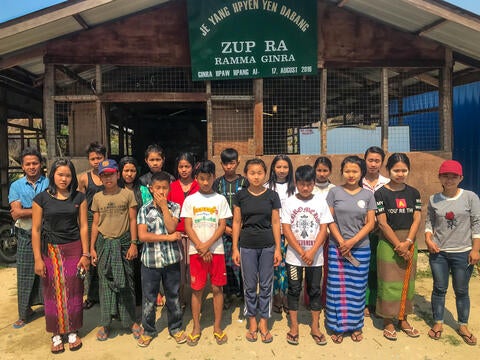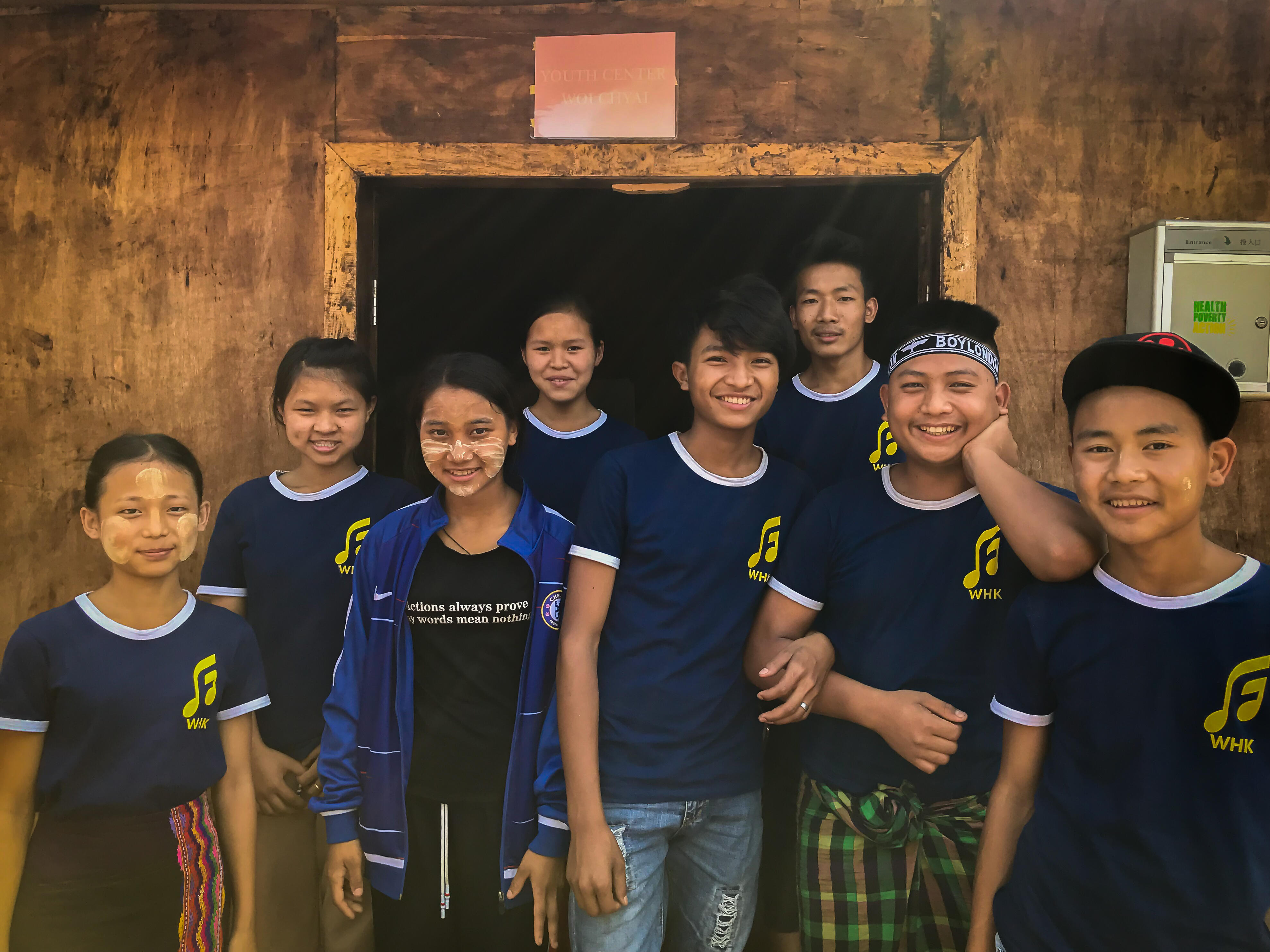BHAMO, Myanmar – “There is a beautiful saying in Myanmar that youth are the brightest stars of the nation. But until young people know their own potential, and know what their rights are, this proverb means nothing.”
Mung Do, 25, is a facilitator at the UNFPA-supported Woi Chyai Youth Centre. The centre is situated in Woi Chyai in Myanmar’s Kachin State, which is a non-government controlled area at the heart of a decades-long armed conflict. Young people in Kachin struggle with high unemployment and drug use, an HIV epidemic, human trafficking, and restricted access to education and health. Isolated from the world, youth in non-government controlled areas are particularly vulnerable. Whole generations grow up in a situation where an opportunities-vacuum is often filled with exploitation, insecurity and displacement.
“There is a particularly great risk for adolescents here to be exposed to bad things in their environment, such as alcohol, drugs, gambling and brawls unless they find themselves somewhere to go and something meaningful to do on a daily basis”, says Mung Do. “My job is to help these boys and girls steer their dreams in the right direction for their future.”
Finding values and turning them into action
Millions of young people in Myanmar are profoundly affected by armed conflict in different areas of the country. These young people grow up in communities which are torn apart. Their voices are unheard, and their potential is overlooked. Even if they migrate out of the conflict area as young adults, their high-school diplomas are often not valid for entry to university, and their career prospects are forever hampered. Even if they know their rights, their starting point for grasping better opportunities for their future is disadvantaged.
To reach young people in non-government controlled areas, where international organizations have limited access, UNFPA partners with local organizations. UNFPA’s youth friendly spaces in Je Yang, Mai Ja Yang and Woi Chyai are managed by Health Poverty Action, which is a local ethnic health organization. The centres are dedicated to providing young people with knowledge about their bodies, relationships and health. They serve youth who live in camps for internally displaced people, as well as youth from the host communities.
Through awareness sessions about adolescent sexual and reproductive health and rights, and also about gender-based violence (GBV), youth learn how to protect their bodies and minds from harmful practices. Due to the effects on the community from armed conflict, which re-escalated in 2011, there are growing threats to young people. Girls and young women in particular are at risk of human trafficking and other gender-based violence. There is increasing documentation of women from Kachin being trafficked as brides across the border to neighbouring China.
“The girls find the GBV really useful. We facilitators, and the girls themselves too, expect their boyfriends to attend those sessions as well. We teach them how to report GBV, and where to receive protection. The good thing is that we know that they actually start practicing what they have learned from the centre in real life. Confidently, we can say that they found these sessions useful”, says Ja San Nu, 24, at Je Yang Youth Centre.
“Naturally, girls and boys are curious about their own bodies”

young people in the midst of protracted conflict.
Data on access to contraceptives and teenage pregnancy underlines that adolescents and young people in Kachin need more information about their sexual and reproductive health and rights. In Kachin, 37 out of 1000 teenage girls are already mothers. This is higher than the national adolescent fertility rate of 33 (2014 Myanmar Population and Housing Census). At the same time, it is difficult for women of all ages in Kachin to access contraceptives. The modern contraceptive prevalence rate of 41.6 per cent is significantly lower than the national avergae of 51 per cent (Myanmar Demographic and Health Survey 2015-2016).
Lack of knowledge about family planning leads to unwanted pregnancy, unsafe abortion and an increased risk of maternal death among already vulnerable teenage girls. Accurate and reliable information, on the other hand, allows them to make informed decision and gives them the confidence to make choices that they will not regret.
“Naturally, girls and boys around 12-15 years old, they are very curious to know about their bodies. When given at the right time in their development and with suitable content, the sexual and reproductive health sessions respond to their curiosity and foster healthy lifestyles. For them, what could be more useful than that”, says youth leader Ja San Nu.
Exploring interests, passions and connections
In Myanmar, youth are often seen as beneficiaries of what the elders have done, rather than as the age group that will take the country’s development forward into the future. In light of this, it is important to empower youth, and to make sure they know they have a right to the information and services they need to protect their health and their future.
“For young people in marginalized areas, the youth centres build their self-confidence to take control of their health and well-being”, says Dr Mahkawnghta Awng Shar, UNFPA Programme Analyst.
“Of course, each centre is also a place for fun. We deliberately create opportunities for them to explore their interests, and the girls and boys come regularly for the sports, games and team activities. The centres are friendly spaces for youth in the midst of protracted conflict.”


